by Genevieve Balance Kupang
The International Association of Research Ethics Across Disciplines, Inc. (IAREAD, Inc.) hosted an innovative webinar, “Application of AI for Research & Accreditation” on March 18th and 19th, 2024. This training workshop explored the transformative potential of Artificial Intelligence (AI) in the research and accreditation landscape, leaving participants from across the Philippines thoroughly impressed by the insightful presentations and engaging delivery of Dr. Genero V. Japos.
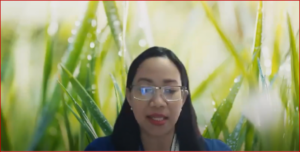
Dr. Anniversary Balbuena, from the University of Rizal System, effectively moderates the two-day webinar.
Dr. Genaro Japos, a renowned educator and researcher, brought his vast experience and knowledge to bear, guiding a diverse audience through the exciting possibilities of AI. The two-day webinar delved into establishing ethical frameworks for AI applications, integrating AI algorithms into accreditation processes, and leveraging AI-powered analytics to enhance educational assessments. Participants
hailed from Luzon, Visayas, and Mindanao, representing a wide range of institutions. Among them were enthusiastic faculty members Engr. Criselda Felix, Prof. Lyha Fias-ilon, and Dr. Genevieve B. Kupang, Dean of the Graduate School of Baguio Central University. All were eager to explore how AI could revolutionize their research endeavors and accreditation processes.

Dr. Genevieve B. Kupang, Dean of BCU Graduate School, views AI as a tool for uncovering hidden gems. She agrees with Dr. Japos in recognizing that post-accreditation data are ripe for analysis and manuscript revision, leading to publication.
“Dr. Japos’ wit, humor, and exceptional delivery style made the complex topic of AI both accessible and engaging,” remarked one attendee. “His expertise in the field was evident, and his passion for responsible AI integration was truly inspiring.”
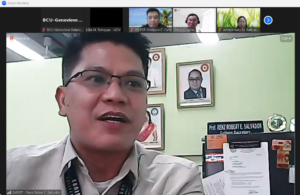
Prof. Renz Robert E. Salvador, from Eulogio “Amang” Rodriguez Institute Of Science And Technology (EARIST), was impressed by the capabilities of AI-generated content. However, he emphasized the need to align it with the university college’s agenda.
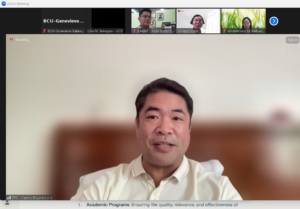
Dr. Edgardo Castro, Jr., from Bulacan Polytechnic College (BPC), highlights how AI can assist institutions develop best practices for academic quality assurance. AI can also suggest relevant research topics that can be bench-marked and further explored. He acknowledges that sometimes initiating research can be challenging, but AI can provide valuable ideas to propel advancements.
The Training Addressed Three Key Objectives:
Ethical Considerations: Participants gained valuable insights into establishing ethical guidelines for utilizing AI in research and accreditation processes, ensuring responsible and trustworthy implementation.
Automating Accreditation: The webinar explored how AI algorithms can be integrated into accreditation procedures, streamlining compliance checks and upholding established standards with greater efficiency.
Data-Driven Assessment: Dr. Japos shed light on utilizing AI-based analytics to elevate the assessment of educational outcomes. This empowers institutions to optimize curriculum and teaching methodologies, ultimately aiming for improved accreditation outcomes.
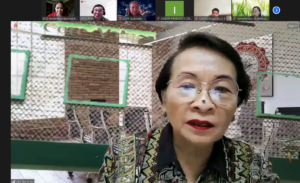
Dr. Lilia C. Tamayao, Vice President for Research, Planning, Publication, and Extension at the University of Cagayan Valley, highlights the transformative potential of AI in advancing planning, research, and accreditation efforts.
The positive response from participants was overwhelming. Many expressed gratitude for the opportunity to learn from Dr. Japos and gain valuable insights into the future of research and accreditation in the age of AI.
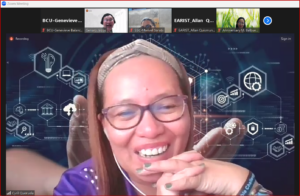
Ma’am Cyril Queruela expresses her joy and gratitude to Dr. Japos for the invaluable AI training experience.
Dr. Genero V. Japos: A Beacon of Knowledge
Dr. Japos’ impressive background undoubtedly contributed to the success of the webinar. His extensive experience as an educator and researcher positions him as a leading voice in the field. Dr. Japos’ curriculum vitae details a rich history of academic achievements, publications, and contributions to the advancement of research methodologies. His passion for ethical and effective AI integration is evident in his work, and his ability to translate complex concepts into clear and engaging presentations was lauded by webinar participants.
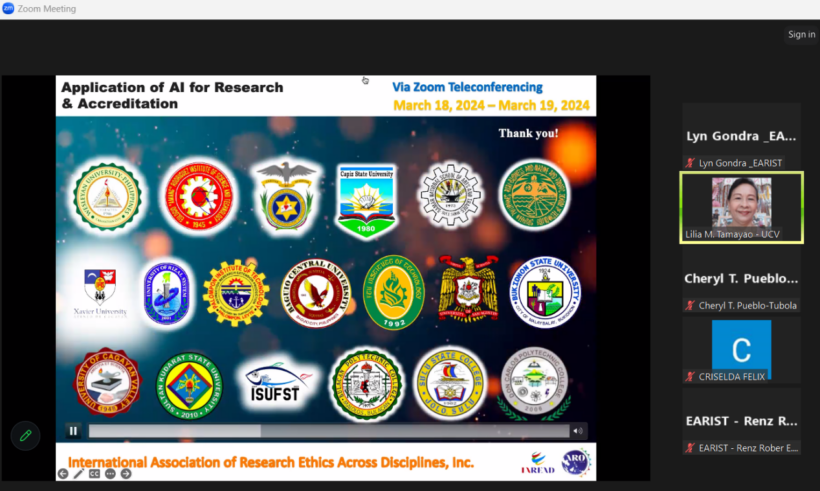
Institutional Members of the International Association of Research Ethics Across Disciplines, Inc. (IAREAD)
The “Application of AI for Research & Accreditation” webinar exemplifies IAREAD’s dedication to fostering innovation and ethical standards in research and accreditation. Under the guidance of Dr. Japos, the event served as an invaluable forum for learning and dialogue, empowering participants to embrace the promising prospects of AI-driven research and accreditation practices. Special appreciation
goes to Sir Jhonny B. Labunog, the Focal Person of IAREAD, for his efficient management in handling registration and certificate issuance.
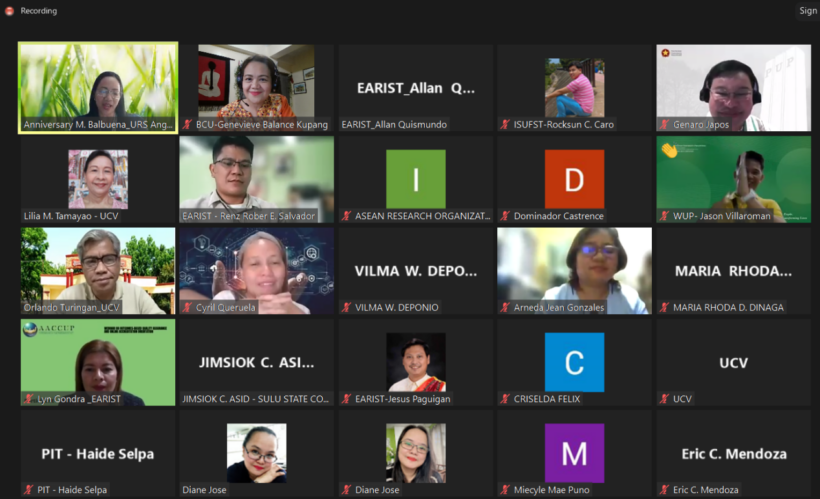
Attendees left the webinar energized and prepared to share their newfound knowledge with students and colleagues. The workshop featured concrete, well-thought-out prompts that elicited elation and amazement from participants, showcasing how AI-powered tools can significantly enhance efficiency
and reduce errors in our work. This emphasizes the importance of harnessing the full potential of our brains alongside AI technologies, ensuring integrity in their use.
Recognizing AI’s capacity to propel quality education, instruction, research, community extension, and quality assurance, participants are poised to integrate these insights into their professional endeavors, fostering a culture of excellence and innovation in their respective fields. Visit: https://aseanresearch.org/iaread for more information.
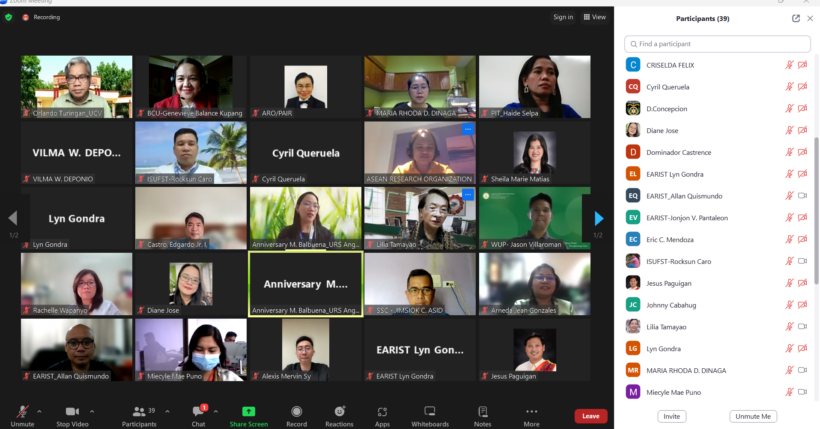
About the Author:
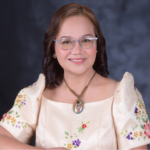
Dr. Genevieve Balance Kupang serves as the Dean of the Graduate School at Baguio Central University. She is a Leadership Team Member for the Exceptional Woman of Peace Award at Pathways to Peace, a UN Peace Messenger Organization. She is the Chair of Special Interest Groups (SIG) of the World Council for Curriculum and Instruction (WCCI). She is an incorporator of the Asian Social Institute and a lay member of the Episcopal Commission on Interreligious Dialogue of CBCP.






